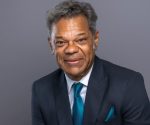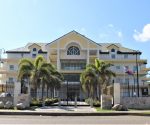Former Aruba Airlines CEO Onno de Swart says: “I have nothing to lose”

GREAT BAY – Former Aruba Airlines CEO and minority shareholder Capt. Onno de Swart recounts the details that led up to his removal from the Aruba-based airline company by the other shareholders and the ensuing legal battles that followed regarding monies owed to him for his shares.
The Curacao-born Onno de Swart (47) studied Aviation Management at the Florida Institute of Technology. In January 2006 De Swart founded Aruba Airlines as the Arubaanse Luchtvaart Maatschappij (ALM) and served for over ten years as its President and CEO. De Swart, who was also a First Officer on the company’s Airbus A320 aircrafts, became a ten percent minority shareholder after he sold ninety percent to a Venezuelan businessman on April 4, 2012. De Swart was paid partly in cash and the remaining amount owed for the shares would be paid eventually according to a payment arrangement.
The airline company had just added a third Airbus A320 to its fleets when the problems for De Swart started. In December 2015 De Swart’s Venezuelan business partner and majority shareholder suddenly passed away after taking five million dollars out of the company. Friends of the deceased business partner took over the shares. The new shareholders soon found out that the company urgently needed capital. However, they had no money of their own. They were expecting to have inherited a company with millions in the bank. This situation immediately led to a tensed atmosphere between the management and the new shareholders.
After consultation with the company’s legal counsel De Swart convened a shareholder’s meeting on February 2, 2016, for the purpose of issuing new shares. “The company needed fresh capital,” explained De Swart, “and I had a new investor.” However, new shares meant that the shares of the other shareholders would be diluted. The other shareholders did not attend the shareholders meeting. Despite this, De Swart proceeded with the shareholder’s meeting, issued new shares, thereby diluting the value of shares of the other shareholders.
The other shareholders immediately filed an injunction on February 9, and requested that De Swart be removed as CEO of the company. Their request was honored by the courts. However, De Swart filed a counterclaim requesting that he be paid out in full for his outstanding current account expenses. As De Swart was owed a considerable sum of money by the company, the court decided to grant De Swart’s request. The company had to pay him out the judge ruled on April 13.
De Swart only had to be paid less than half of what was owed to him because in a pre-emptive move to secure the company funds, De Swart had closed out the airline company’s bank accounts at the Bank of America in the USA and transferred the funds to his personal account. He was in the process of opening new accounts for the company, when the court ruling came through allowing his termination as managing director. De Swart then decided to keep the money. “I was entitled to that money,” De Swart explained, “as my expenses at the time were approved in the last general shareholders meeting when my business partner was alive.”
As the other shareholders sued De Swart in an Aruban court and won the case, he had to return the funds to the company. However, the judge gave the company 120 days to pay De Swart for the difference still owed to him – an amount of 172,500 Aruba Florin plus interest. “One week before the deadline expired they appealed the case.” De Swart said. “However, that case only lasted twenty minutes because the judge threw it out and they lost the appeal.”
In the Aruba press De Swart was quoted as saying “Pay up now!” after that last court case was concluded in September. “They paid yes, but they only paid partially.”
Apparently, Aruba Airlines had paid out a portion of the amount owed to De Swart to another party who had a claim against De Swart. “These are the games they are playing with me,” De Swart says. However, because the 90% shares he sold to his late business partner was never paid in full, De Swart has now filed a court procedure to get back the 90% stake in the company. That case will be heard in October.
As a result of losing two court cases and the ensuing bad publicity for the airline company, the lawyers of both De Swart and the company have now agreed to talk about a settlement agreement which includes payment for the ninety percent shares that was partially paid off and for his own ten percent shares. De Swart says “I have nothing to lose”. So he is holding out for payment in full, especially for his 10% stake, and does not intend to give in. “I will not give in, not even an inch.” he says with conviction. “I even want the money they owe me to be placed now in an escrow account until final settlement.”
When asked about the present status of the airline company, De Swart declared that he is not allowed to speak on behalf of the airline. However it is common knowledge that Aruba Airlines is presently flying only one route from Maracaibo, Venezuela, to Miami via Aruba and back. Besides the one commercial route between Venezuela and Miami, the airline company is also executing charters from Miami to Cuba. This operation will soon come to an end as the US authorities have granted regular commercial airlines like American Airlines and Jetblue the rights to fly to Cuba from the USA.
On September 19, an Aruba Airlines Airbus A320 aircraft had to break off its take-off flight as the pilots reported to the Air Traffic Control (ATC) that the right engine had apparently lost its outboard fan cowl. The aircraft returned to Miami International Airport and landed safely without any further incident. The damage to the engine cowl and fuselage proved to be extensive.

“This can happen to any airline,” De Swart said when asked about the effects of this incident on the status of the airline company. “It’s not good timing for the company.” Apparently, Airbus has issued an Airworthiness Directive (AD) due to a locking problem whereby it cannot be determined whether the engine cowls are properly secured or not. De Swart did not want to speculate about whether Aruba Airlines or the company it outsources its maintenance work to had followed up on this AD note or not.























